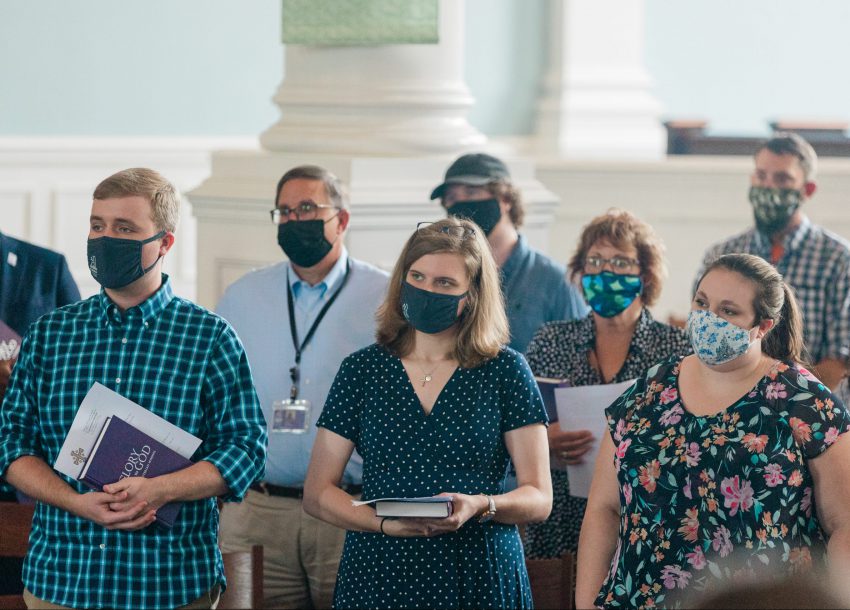Proverbs from PTS Field Education (Part 2 of a 2 part series)

by Barbara J. Blodgett, Director of Field Education at Pittsburgh Theological Seminary
Part of being a supervisor in the Pittsburgh Theological Seminary Field Education program is meeting and learning with fellow supervisors. Each supervisor attends two sessions per year. This year, we took those sessions off campus and into spaces that would inspire our thinking about what it means to mentor someone into ministry. In last week’s post we reviewed the first supervisor session of last year, titled “But Can It Be Taught?”. Today we look at the second session, called “Engaging Place and Story.”
Engaging Place and Story
Contextual analysis is a central skill taught in field education, but it is not an easy one. At first glance we may not see the complex and hidden stories of a place. In October 2021, I met with field education supervisors along with Erin Davenport ’05 and Derek Davenport ’05/’17. We walked around the Seminary’s neighborhood to engage four churches knit together dating back to 1971, when a fire destroyed two of their buildings. Then we talked about the challenges often impeding an ability to accurately “read” the context of a place, and how we as supervisors can help our students overcome those challenges. Here are a few takeaways from our gathering, wisdom helpful for students and anyone else in ministry.
Seven Proverbs from Engaging Place and Story
- You can’t always tell a church by its façade.
- The same neighborhood can simultaneously yield stories of systemic sin and Christian hospitality.
- If you listen only to the first or the loudest voice, you might miss important parts of a place’s story.
- Do not assume that your past experience is the norm everywhere.
- Stories of small churches are often closely intertwined with the stories of families. (If you step into a church where you have family connections, you might learn more about your kin than you ever knew!)
- Historic churches are often literally awesome. Try not to let inevitable disappointments tarnish that initial sense of awe you felt when you first walked in.
- People prefer to tell their stories in different ways, so you need to figure out with each whether to converse face-to-face, by phone, or in writing.


1 thought on “Engaging Place and Story”